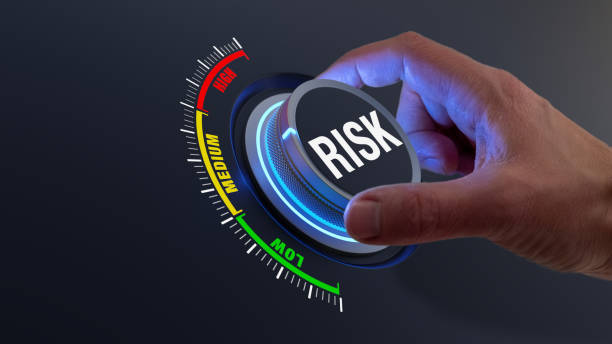Whether you are an individual or a business entity, managing risk is essential for you. The more you understand risk, the better you manage it. This article will give you some ideas on financial risks, how and when they arise and how to approach them.
What survey findings indicate
The 2017 Fortune Risk Management Survey by Deloitte revealed how the fear of risk can diminish an organization’s growth opportunities. Those in the leadership role want things to be under controlled, often at the expense of slow business growth. They fail to realize that losing a little control and taking risks is the only way that leads to opportunities in today’s fast-paced business environment.
An individual can learn an important lesson from it. That when their financial lives are fully under their control, growth opportunities slow down. In order to accelerate financial growth, they must lose a bit of control while at the same time have a value-focused strategy to handle the incoming risk.
Finance and risk
The 2017 Enterprise Risk Management Benchmark Survey found something interesting. Not all types of enterprises are equally serious about managing risks. Only 24% organizations reported having a fully integrated enterprise risk management (ERM) program. However, among the financial institutions surveyed, more than 90% reported having either fully or partly operational ERM.
What this means is financial institutions are ahead of non-financial enterprises in this regard. The reason behind this is not hard to fathom. Finance is all about risks. The two are hard to separate. Financial institutions deal with real money, from real people. If they fail to manage risks, that’d result in loss of money, and loss of reputation too.
#Takeaway for individuals: Your need to constantly evaluate your financial decisions. Better if you have a personalized risk management strategy at work.
Types of risks
Identify the risk types that could affect your financial life. The Global Risk Report 2018, published by the World Economic Forum is an excellent reference. The report offers takeaways for enterprises as well as for individuals. Key enterprises takeaways include:
- Sustainability challenges
- Geopolitical risks
- Cybersecurity problems
- Disruptive “future” technologies
These risks are pertinent to not just large enterprises, but to small businesses and individuals who are struggling to put together their financial lives. For example, disruptive technologies may be problematic for large organizations. They might have to restructure their current infrastructural set ups to reduce overheads when such technologies arrive. But small enterprises can leverage such technologies to accelerate growth.
Geopolitical happenings pose as a serious risk, for organizations as well as for individuals. For example, the political tension in the war-torn middle east caused soaring oil prices, affecting oil companies, those who invested in oil futures and ordinary people who had to pay extra for daily commodities.
#Takeaway for individuals: Stay posted on what’s happening around you. Not interested in knowing why Mexico is monetizing silver? Understand this decision affect your financial life and your future invest decisions. So stay updated on geopolitical news.
Debit card risks
Almost all Americans use debit card. Many are blissfully unaware of the risks their cards carry. This is the kind of risk that mostly individuals face, albeit organizations that issue debit cards are not fully immune to it.
Debit card risks unfold when cards are lost. The card issuers normally have “zero liability” protection, meaning the card holder is not responsible for any charges that are not authorized. In some cases, the card holder has to activate “zero liability” protection. Check with your card issuer if they have this feature enabled.
Debit card issuers have to update their security checks and balances. Any flaw in their internal cybersecurity arrangement could translate to data being lost or stolen. True, the federal law can hold them responsible only after thorough investigation, but they can be sued by disgruntled customers and if the customer wins, he’d receive a large amount of money as reimbursement.
Enters automation
Automation is a game-changer. Success without automation is hard in today’s competitive business world. The topic of automation mostly appears in business context, but in reality, automation ranges beyond organizational barriers and can be relevant for a property holder or an individual investor.
To gauge the power of automation for financial services, one should look at McKinsey’s report on the transformative power of automation. The report shows a correspondence between productivity increase and automation. The next wave of automation, according to McKinsey, can reduce up to 25% of repetitive labor in the banking and finance process.
Individuals may not use automation on such a large scale, but they can leverage it to improve their financial lives. For example, financial software can offer mortgage property holders fresh perspectives on how much their properties will be worth in few years down the line, involving variables that are currently missing from the calculation.
Then there are those who invest in the stock market. Harnessing automation, they can get a clearer idea of how much they should invest and in which stocks.
The bottomline is simple; automation mitigates financial risks and increases rewards, rebalancing the risk reward ratio in the investor’s favor.
Summing up
This article delivers a generic idea of financial risks for businesses and individuals. In the next article, we’ll explore several types of enterprise risks and how to overcome them.

